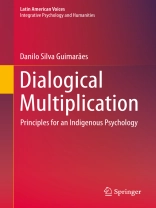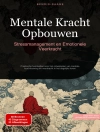This book presents a theoretical framework developed to support psychologists working with indigenous people and interethnic communities. Departing from the cultural shock experienced as a psychologist working with indigenous people in Brazil, Dr. Danilo Silva Guimarães identifies the limits of traditional psychological knowledge to deal with populations who don’t share the same ethos of the European societies who gave birth to psychology as a modern science and proposes a new approach to go beyond the epistemological project that aimed to construct a subject able to represent the world free from any cultural mediation.
According to the author, the purpose of cultural psychology is to produce general psychological theories about the cultural mediation of the self, others and world relationships. Based on this assumption, he argues that to achieve this aim, cultural psychology needs to understand how indigenous perspectives participate in the process of knowledge construction, transforming psychological conceptions and practices. In this volume, the author presents his own contribution to open cultural psychology to indigenous perspectives by discussing the theoretical and practical implications of the notion of dialogical multiplication for the construction of work in co-authorship in the relation between psychology and indigenous peoples.
With the growing migrations around the world, competences in psychological communication across cultures are more demanded each day, which makes Dialogical Multiplication – Principles for an Indigenous Psychology a critical resource for psychologists working with interethnic and intercultural communities around the world.
İçerik tablosu
Introduction.- Section 1: Principles of an indigenous psychology.- 1. Dialogical multiplication and cultural psychology.- 2. The cultural construction of organizing senses for disquieting experiences.-3. The affective-cognitive process between perceptions and imaginations in the flow of personal trajectories.- 4. The dialogical relationship between people and their speeches.- 5. Dialogical multiplication and the multiplicity of indigenous psychologies.- 6. Final considerations.- Section 2: Commentaries.- 7. Privilege Awareness and Ambiguity Tolerance: Do we need categories to understand the world and if yes, how many?.- 8. Perception – subculture – development.- 9. Pōwhiri: Rituals of encounter, recognition and engagement.
Yazar hakkında
Danilo Silva Guimarães is associate professor at the Institute of Psychology, University of São Paulo, São Paulo, Brazil. He has been working with theoretical and methodological issues concerning the cultural construction of senses, from a semiotic–cultural and constructivist perspective in psychology. His focus of investigation is the tensional boundaries between cultural alterities, indigenous psychologies and Amerindian peoples.












